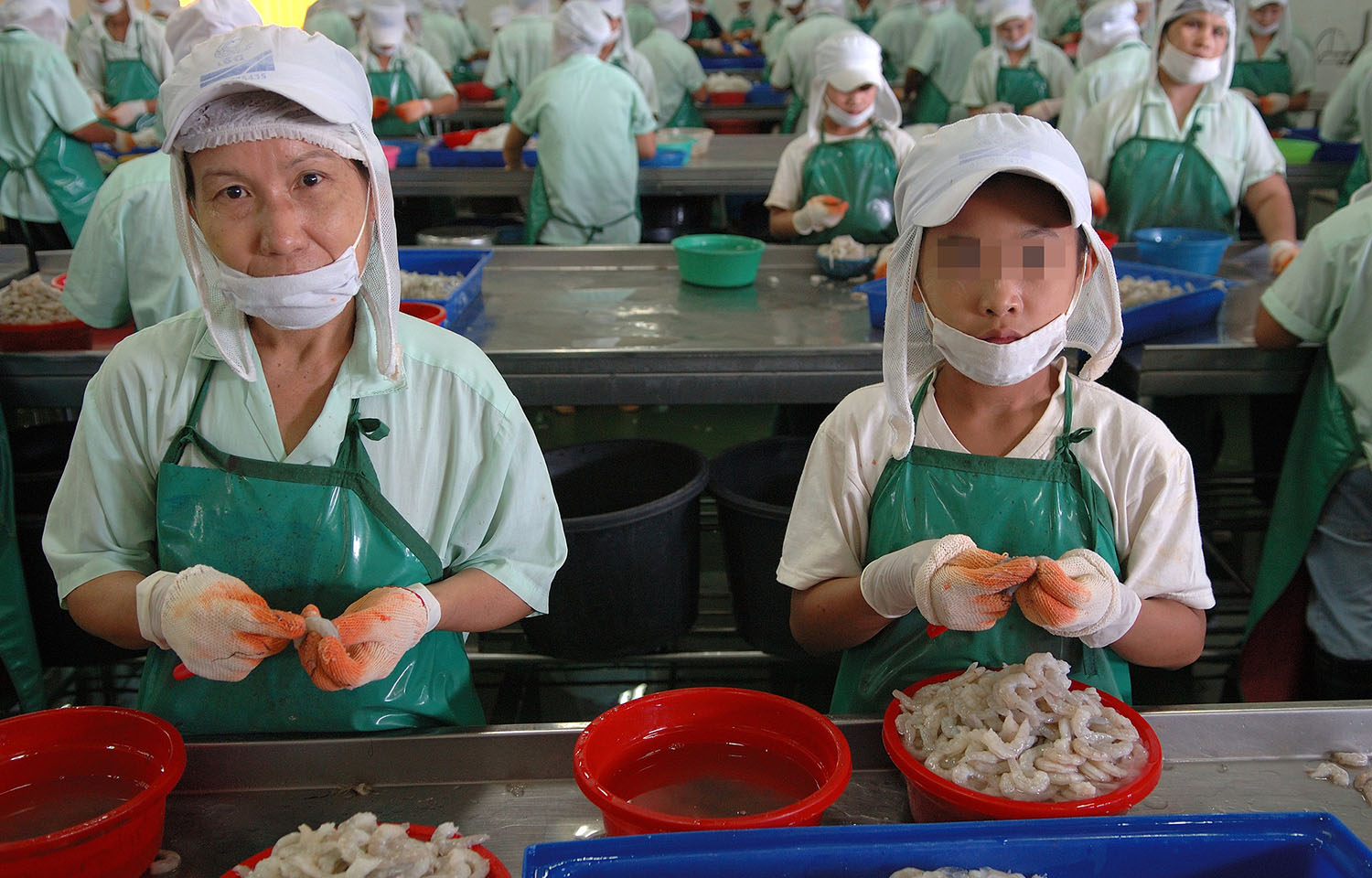The U.S. Department of Labor (DOL) is pushing for a revision to a 15-year-old determination that child labor is prevalent in Thailand’s shrimp sector.
Thai shrimp were added to the DOL’s annual “List of Goods Produced by Child Labor or Forced Labor” since 2009, which requires importers to go through a series of additional checks to ensure forced or indentured child labor was not employed to produce any shrimp they buy from Thailand.
However, a 10 May DOL notice published in the Federal Register proposes shrimp from Thailand be removed from the list after the agency, along with the U.S. State Department and U.S. Department of Homeland Security, determined the use of forced child labor in the Thai shrimp sector “appears to have been significantly reduced.”
“Based on available information from various sources, the three departments have preliminarily concluded that there is no longer a reasonable basis to believe that there is use of forced or indentured child labor in the production of [Thai shrimp],” the notice said. “The DOL has received recent, credible, and corroborated information from various sources on the use of forced or indentured child labor in shrimp production in Thailand.”
The DOL has opened public comment on the proposed change, to be handled through its Office of Child Labor, Forced Labor, and Human Trafficking, through 10 June 2024.
Thailand’s shrimp industry was the subject of a Pulitzer Prize-winning Associated Press investigation that found it was rife with abusive labor practices. In its notice, the DOL said it had received information between 2006 and 2015 indicating children were peeling shrimp in small and unregulated “shrimp sheds” in Thailand.
“In more than isolated incidents, these migrant children were engaged in forced child labor,” it said. “Following international attention and action on labor exploitation in Thailand's seafood industry, the Royal Thai Government and other stakeholders made a series of concerted significant efforts to address child labor and forced child labor throughout the seafood industry, including in the shrimp-peeling sector.”
Among the moves made by the Thai government was its ratification of the International Labor Organization’s Maritime Labor Convention and its Work in Fishing Convention. It also passed numerous fisheries sector reforms, including its Ministerial Regulation Prohibiting Children in Seafood Processing and its Royal Ordinance on Fisheries, which enhanced traceability systems of aquatic resources in Thailand. It also strengthened migrant worker recruitment regulations through revisions to its Labor Protection Act of 1998 and the Royal Ordinance on Foreign Worker Management (No. 2), according to the U.S. Deputy Undersecretary for International Affairs Thea Mei Lee.
“Private-sector entities also acted against forced child labor by formalizing their supply chains, eliminating nearly all unregulated ‘shrimp sheds’ in which child labor and forced child labor were previously documented," Lee said in the DOL notice.
However, according to the Seafood Working Group, while the Thai government committed in 2022 to granting migrant workers the legal right to establish labor unions as part of its anti-trafficking efforts and adopted anti-trafficking measures intended to strengthen the identification of survivors of forced labor, it has not fulfilled obligations to make those policies effective. Thailand’s seafood industry has also made a concerted push to roll back many of the previously adopted reforms.
Nonetheless, the DOL said it had seen enough evidence of a curtailment of forced labor and child labor to make its recommendation that its rating of Thailand’s shrimp sector be upgraded.
“In 2023, Thai government officials, an industry trade group, workers' associations, international organizations, and nongovernmental organizations reported that incidents of forced child labor in shrimp processing had been reduced to no more than isolated cases,” it said. “DOL's review of available information corroborated that forced child labor in the production of shrimp had been significantly reduced to isolated incidents.”
Thailand exported 27,826 metric tons of shrimp to the U.S. in 2023, down from 36,791 MT in 2022 but still ranking it fifth in total volume.








